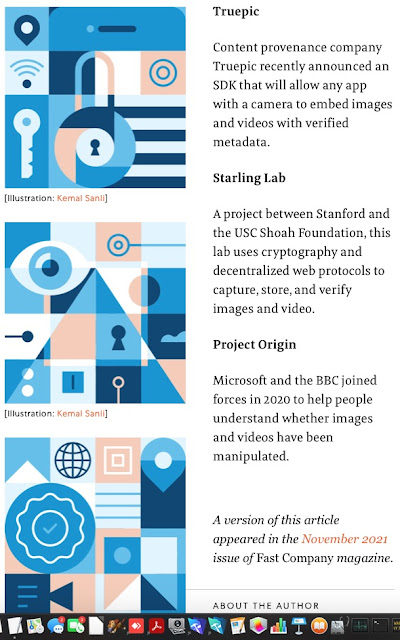Deep fakes are everywhere. Just go to any site and see nonsense, usually on the right hand side of a site page or on the bottom, purporting to say something ridiculous regarding some celebrity, news event or "scientific" fact along with a doctored graphic showing said tidbit to be "true" One of the usuals is a huge beast found on a beach near you. Seems Adobe and significant others, using metadata as the weapon of choice, is enabling us rubes to put out stuff that's legit without question.
However, deepfake code's everywhere, even in Adobe.
In the photo, Beyoncé looks beatific, with a closed-lip Mona Lisa smile. But it’s easy enough to give her a toothy grin. Just dial up her “Happiness” to the maximum level using Adobe Photoshop’s Smart Portrait tool, and her face gets a Cheshire cat-like smile, white teeth appearing out of thin air.
Smart Portrait, released in beta last year, is one of Adobe’s AI-powered “neural filters,” which can age faces, change expressions, and alter the background of a photo so it appears to have been taken at a different time of year. These tools may seem innocuous, but they provide increasingly powerful ways to manipulate photos in an era when altered media spreads across social media in dangerous ways.
But what Adobe giveth, Adobe also can use this tech to insure any image generated from us is truly real.
Rao, who now leads the company’s AI ethics committee, teamed up with Gavin Miller, the head of Adobe Research, to find a technical solution. Initially, they pursued ways to identify when one of Adobe’s AI tools had been used on an image, but they soon realized that these kinds of detection algorithms would never be able to catch up with the latest manipulation technologies. Instead, they sought out a way to show when and where images were taken—and turn editing history into metadata that could be attached to images.
The result is the new Content Credentials feature, which went into public beta this October. Users can turn on the feature and embed their images with their identification information and a simplified record of edits that notes which of the company’s tools have been used. Once an image is exported out of Photoshop, it maintains this metadata, all of which can be viewed by anyone online through a new Adobe website called Verify. Simply upload any JPEG, and if it’s been edited with Content Credentials turned on, Verify will show you its metadata and editing history, as well as before-and-after images.
Glad to see other apps designed to deal with deep fakes,
a scourge just as bad as spam calls on your smartphone.



No comments:
Post a Comment